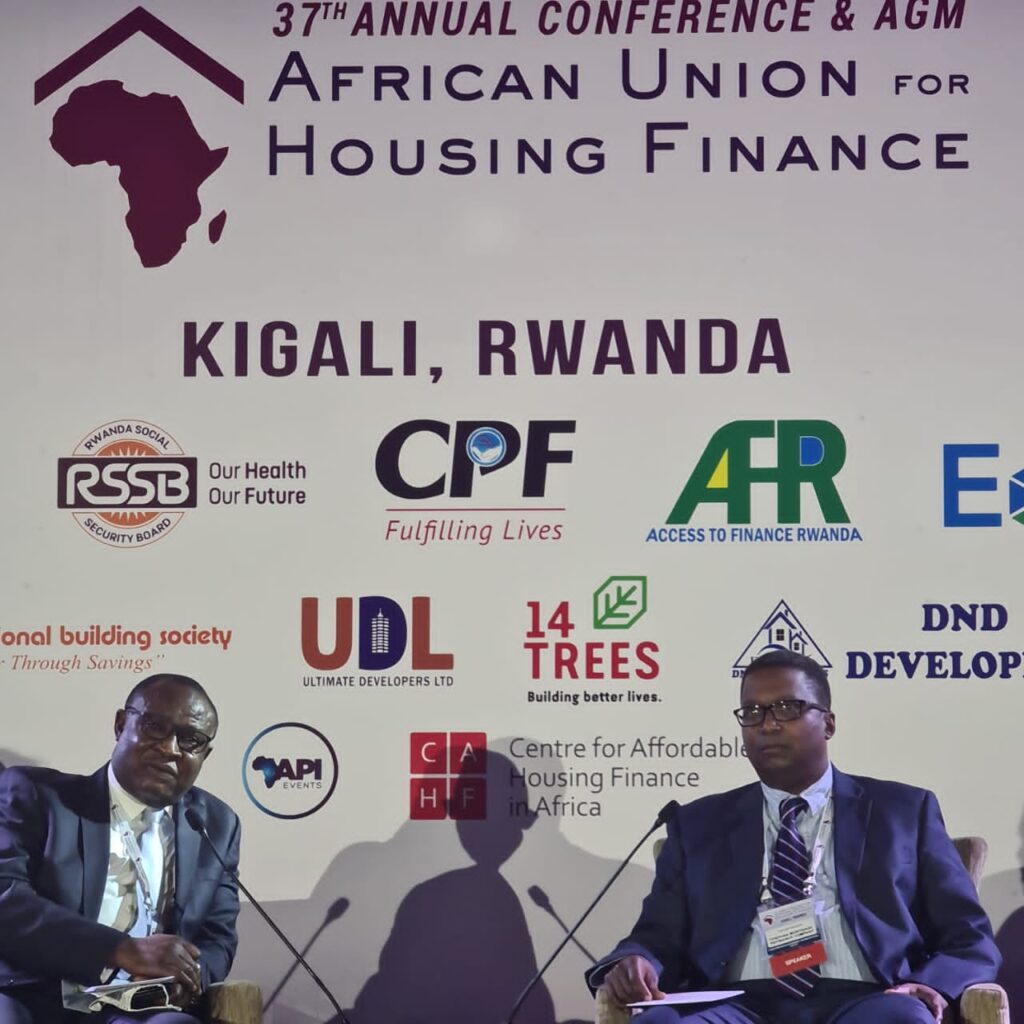Governments at the regional, national, state or provincial, and local levels have been urged to champion the delivery and management of affordable housing as a central economic development strategy, by actively creating an enabling environment for investment in affordable housing.
The African Union for Housing Finance (AUHF) made the call at its 37th Annual General Meeting in Kigali, Rwanda, recently.

The call was contained in a draft statement tagged “Kigali declaration” which was made available to Africa housing news, on Tuesday.
It called on government to give specific attention to the assembly and delivery of well-located land, bulk infrastructure, and productive transport networks while championing the collection and dissemination of available statutory and administrative data relevant to housing investment through the creation of specific opportunities to network with AUHF, share experiences, and learn from one another, on how to identify the bottlenecks, crafting the solutions and engaging in the opportunities in affordable housing across the continent

AHUF also encouraged international development finance institutions and other development agencies to support the growth of the affordable housing sector, recognising the potential systemic impact of their interventions and investments
It noted that the need for affordable housing is acutely felt in the cities and towns across Africa, where over 80% of urban households live in inadequate housing.
The union however regretted that the Covid19 pandemic has had a particular impact on the housing sectors in member countries to deliver, with government resources strained, businesses decimated and households pushed deeper into poverty.

“Coming out of this, the housing imperative is that we must do more with less .The impact of climate change is particularly felt by low income households in inadequate housing. The delivery of affordable housing must reduce this impact Increasingly, governments are recognising the centrality of housing to their broader economic and social development goals, and are championing this in their policies and programmes.” the union observed.
Although it emphasised that the impact of the covid 19 era created useful opportunities for the private sector to engage, while stating that in the context of historically low growth figures in countries across the continent, investment in housing creates an important and strategic opportunity to change the narrative and drive growth domestically, from within.

The Union pledged to commit itself as an organization to involving in the financing and delivery of housing across Africa, and to work together in leveraging their diverse capacities, charting new frontiers in the delivery of affordable housing across the continent and in respective member countries.
AUHF further appreciated that there are significant capacity constraints in both the public and the private sectors undermining the optimal performance of the affordable housing sector, as well as critically unrecognised capacity opportunities, which should be leveraged.
Specifically, it said the issues relate to: land and infrastructure, capacity land assembly, titling and management systems which are inconsistently available and regularly inefficient.
” Opportunities for densification cannot be easily realised given the structure of existing supply chains, lack of underlying infrastructure (given constraints in municipal infrastructure financing) means that developments include bulk in their overall project cost2.”
On Construction and management capacity the Union said that few developers have the capacity to build more than 500 units at a time, pointing out that consistently over years, houses that are formally built are far out of reach of the majority of households, while the the majority of housing across the continent is delivered by households and small scale builders
The Union on its part advised members to mainstream green and climate responsive interventions so that they are truly affordable, and intentionally structure portfolios to quantify social impact/ environmental sustainability returns as central key performance metrics.quality:
It also urged them to raise the bar on quality, developing and mobilising innovative construction techniques and other technologies to optimise the housing value chain, scale delivery and access to capital, delivering sound customer service that extends into management and maintenance of housing over time, all without compromising on affordability.




